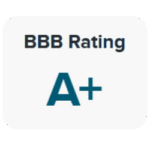Vacation properties have become a big hit in the last decade
These timeshares have seen tremendous growth, with onsite resort revenues exceeding a billion dollars in 2020. Despite this growth, they still have a bad reputation due to hidden costs. Before investing in timeshares, it is critical to understand what they are and how they work.
What You Need to Know
Timeshares are vacation or resort properties owned by several people. The property owners share the costs of maintenance and upgrades equally. Owners are allowed to use the property as they wish but are not allowed to sell it. There are various timeshares, all of which have different associated costs.
Note that this investment yields very little in returns. They give owners the opportunity to vacation at a similar location.
Costs Associated With Timeshares
Before investing in a Timeshare, it is critical to understand what you are doing. This investment has an average cost of $22.180. This amount is what you will pay for a Timeshare. The figure may vary depending on the popularity of the location.
Maintenance fees cost between $900 to $1200, but this is also subject to property taxes and other miscellaneous costs. According to The Timeshare Guru, about 53% of timeshare owners spend up to $10,000 or more on a property.
Costing begins with the initial buy-in. This fee includes the points you must purchase as a joining cost. Essentially, you need to buy a minimum number of points to get in.
There are also special administration costs. These fees cater to ownership transfers and late payments. Delinquent owners who constantly delay payments get slapped with huge fines. They also cater to cancellations and other late payments. You incur special administration costs under specific circumstances. So you rarely have to worry about them.
Unlike garden variety resorts, timeshares require you to pay for housekeeping out-of-pocket. Housekeeping fees are separate from other maintenance costs and offset cleaning and room service costs.
Property upkeep or maintenance fees are a concern for many timeshare owners. These costs are expensive, and they are non-specific. Some vacation destinations include upgrades in these fees, which increase costs substantially. Timeshares have many other hidden costs that drastically reduce their value and potential return on investment. Timeshares may seem lucrative, but they are costly and offer little return. If you’re looking for a timeshare exit strategy, we’ve got you covered. Give us a call today for more information!








